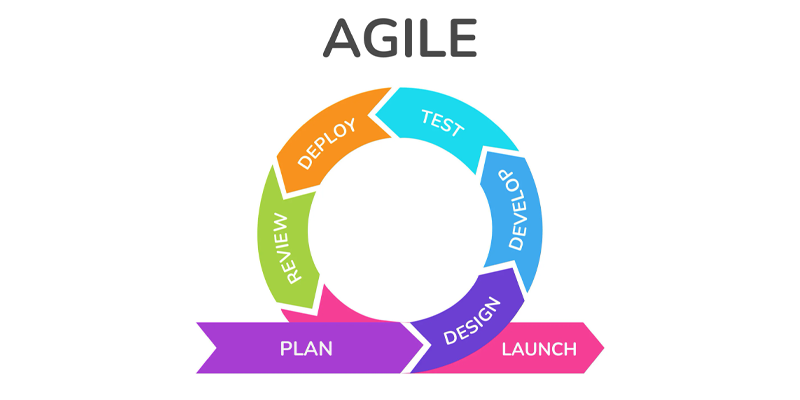In today’s fast-paced and ever-changing business landscape, organizations are constantly seeking ways to stay ahead of the competition. Traditional software development methods often fall short in delivering timely and high-quality results. This is where Agile Development comes into play.
Agile Development is an iterative and incremental approach to software development that focuses on collaboration, flexibility, and adaptability. It is designed to respond quickly to changing requirements and deliver tangible results in a rapidly changing world.
The Principles of Agile Development
Agile Development is guided by a set of principles that enable teams to work efficiently and effectively. These principles include:
- Customer collaboration over contract negotiation: Agile teams prioritize customer satisfaction by involving them throughout the development process. This ensures that the final product meets the customer’s needs and expectations.
- Working software over comprehensive documentation: Instead of lengthy and detailed documentation, Agile Development emphasizes the importance of delivering working software early and frequently. This allows for faster feedback and quicker response to changes.
- Responding to change over following a plan: Agile teams embrace change and are flexible in adapting their plans to meet new requirements or market conditions. This allows for faster delivery of value and reduces the risk of building irrelevant or obsolete features.
- Individuals and interactions over processes and tools: Agile Development values the collaboration and communication between team members. It recognizes that effective teamwork and clear communication are crucial for delivering successful outcomes.
The Benefits of Agile Development
Agile Development offers numerous benefits that contribute to its popularity and widespread adoption:
- Flexibility: Agile teams can quickly respond to changing market demands and customer needs. They can adapt their plans and priorities to ensure that the final product meets the evolving requirements.
- Increased customer satisfaction: By involving customers throughout the development process, Agile teams can ensure that the final product meets their expectations. This leads to higher customer satisfaction and loyalty.
- Improved quality: Agile Development emphasizes frequent testing and continuous integration. This results in higher-quality software that is more reliable and less prone to bugs and issues.
- Reduced risk: By delivering working software early and frequently, Agile teams can identify and address potential issues sooner. This reduces the risk of building a product that does not meet the customer’s needs or fails to deliver value.
- Increased team collaboration: Agile Development promotes collaboration and communication among team members. This leads to better teamwork, improved morale, and increased productivity.
Implementing Agile Development
Implementing Agile Development requires a shift in mindset and a commitment to embracing change. Here are some key steps to successfully adopt Agile practices:
- Educate and train the team: Provide training and education to the team members to ensure they understand the principles and practices of Agile Development. This will help them embrace the new approach and work effectively.
- Define clear goals and priorities: Clearly define the goals and priorities of the project. This will help the team stay focused and ensure that the final product meets the desired outcomes.
- Establish effective communication channels: Foster open and transparent communication within the team and with stakeholders. This will enhance collaboration and ensure that everyone is aligned and informed.
- Adapt and iterate: Embrace the iterative nature of Agile Development. Continuously gather feedback, adapt plans, and make improvements based on lessons learned.
- Empower the team: Trust and empower the team members to make decisions and take ownership of their work. This autonomy fosters creativity and innovation.
Agile Development has revolutionized the software development industry by enabling organizations to deliver results in a rapidly changing world. By embracing the principles of Agile and implementing its practices, businesses can stay ahead of the competition, satisfy their customers, and achieve success in today’s dynamic marketplace.





